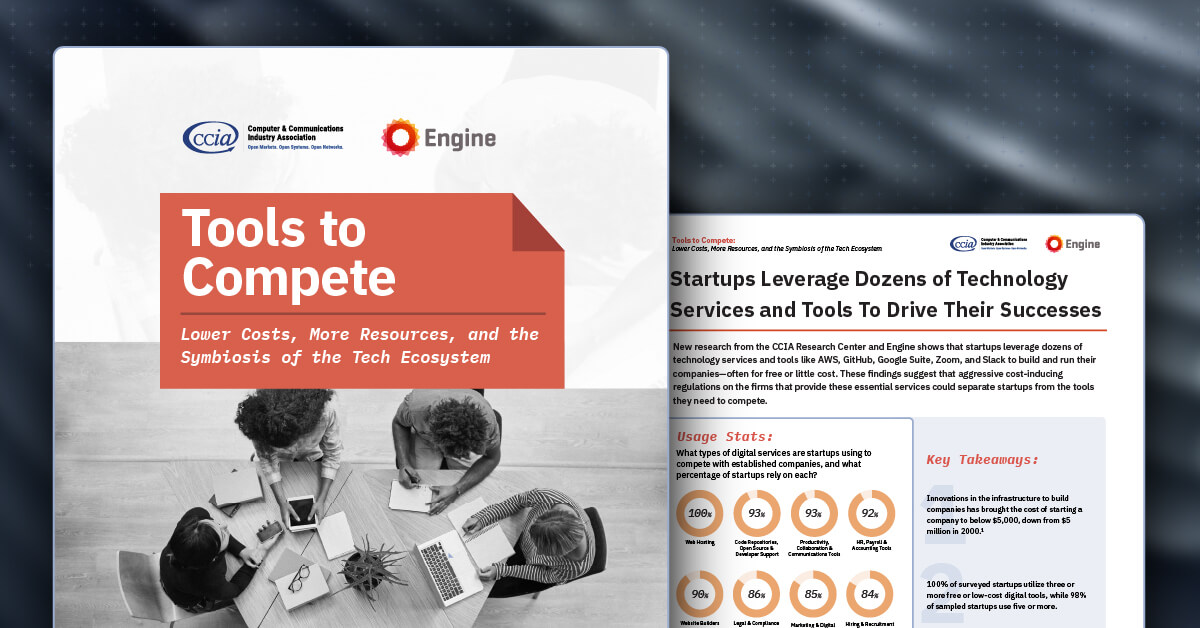Proposed Legislation Could Create Higher Barriers to Entry for Startups

It’s no secret that companies of all sizes benefit from free and low-cost digital services like Slack, AWS and GitHub- but what role do affordable communication tools, cloud services and code repositories play in the U.S. startup ecosystem? A new study by the CCIA Research Center and Engine investigates the degree to which startups use free and low-cost digital tools and services and finds that not only do all surveyed and sampled startups use at least three of the tools examined, but most young companies heavily rely on and even attribute their success to the accessibility and affordability of digital tools like Google Suite, Zoom and Azure.
Widespread reliance on enterprise services to build businesses is nothing new, but its exponential growth and evolution has empowered U.S. startups to bring innovation to industries at an astounding rate. Investments in innovation by leading U.S. digital service providers have produced advancements in the infrastructure to build companies. Those same providers offer free and low-cost infrastructure services to startups, reducing the cost of starting a company to below $5,000, down from $5 million in 2000. Reduced barriers to entry enable countless entrepreneurs across the U.S. from a diverse set of backgrounds to focus their limited resources on bringing innovative ideas to fruition.
However, proposed legislation is predicted to increase costs for large targeted companies and prohibit or make it uneconomical to offer free and low-cost services to startups. Resulting costs to startups could amount to $3,000 per employee per year. CCIA’s joint study shows that 100% of surveyed startups utilize three or more free or low-cost digital tools and 98% of sampled startups use five or more. Regulations forcing large firms to restructure or discontinue integrated digital services could separate most startups from the tools they need to compete, adding a significant barrier to entry for new and emerging businesses and reducing the flow of innovation and new competitors into markets.
To avoid harmful unintended consequences as they legislate in the technology sector, policymakers must keep in mind the interconnected and interdependent nature of the startup ecosystem. At a time when high inflation and economic uncertainty are forcing companies of all sizes to slim operations and budget resources, it’s more important than ever that startups have access to the tools and services they need to bring innovative products & services to consumers.
¹ See, e.g., Anand Sanwal, Startups and Accelerating Corporate Innovation, CB Insights (2015) https://www.cbinsights.com/reports/corporate-innovation-theater.pdf.
² Trevor Wagener, Key Services for Startups and Small Businesses Jeopardized by Antitrust Bills, Project DisCo (May 23, 2022), https://www.project-disco.org/competition/052322-key-services- for-startups-and-small-businesses-jeopardized-by-antitrust-bills/.








